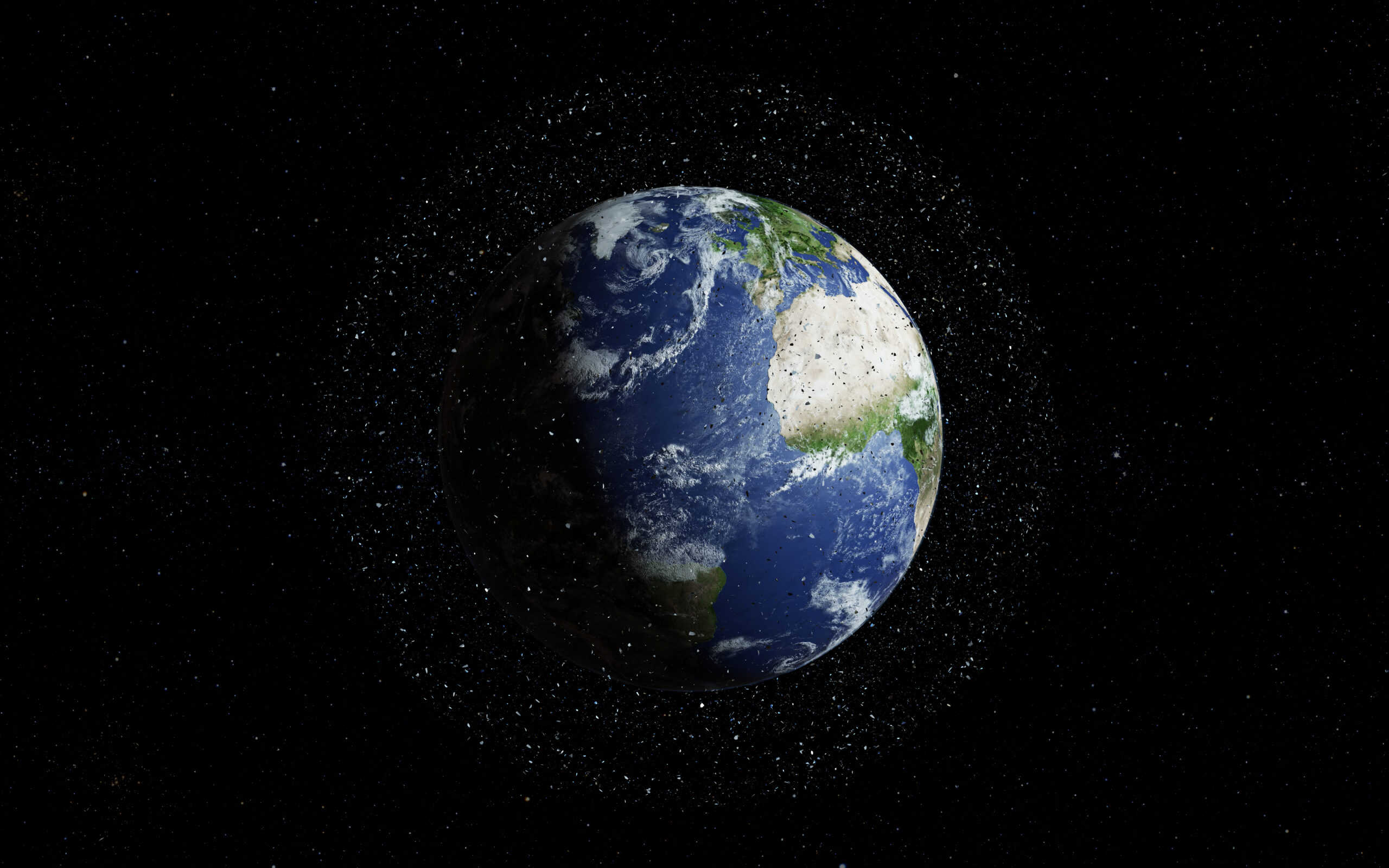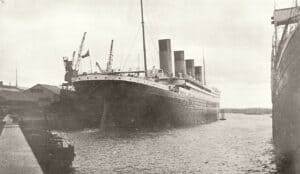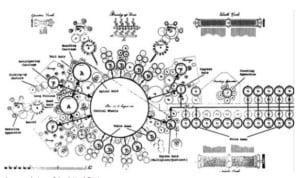Looking back at the entire history of the world is hardly an easy feat. How could a person possibly round up the most famous individuals from throughout so many countless years? Thanks to the Google Ngram Viewer, we can get a clearer idea about the most famous people in history. This helpful tool scans through a massive assemblage of books and texts to determine who has left the most indelible marks on our collective consciousness. From ancient philosophers to modern icons, these individuals have shaped our world like no other.
100. Rosa Parks (1913 – 2005)
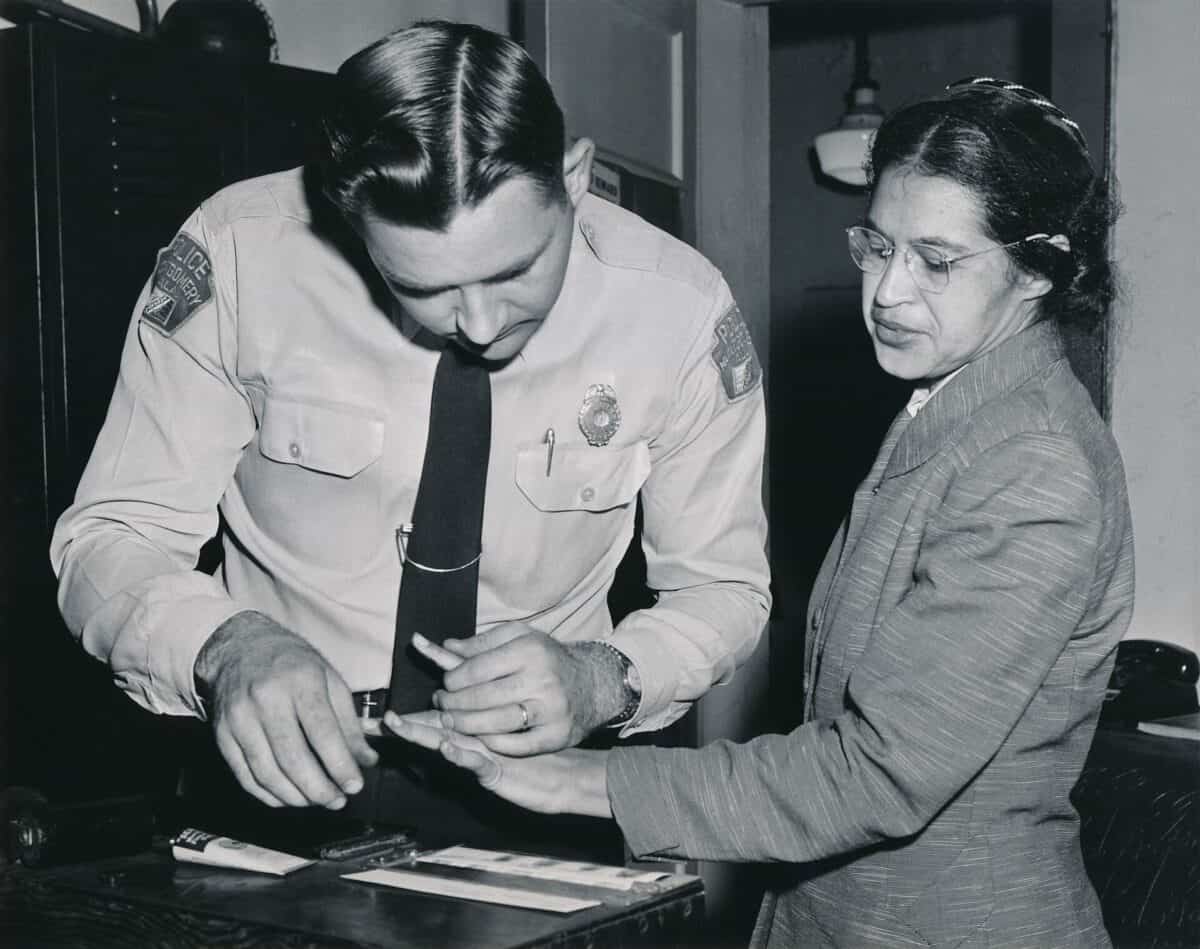
©Public Domain – License
An American activist known as “the first lady of civil rights” who played a pivotal role in the civil rights movement, known best for her refusal to give up her seat in the Montgomery bus boycott.
99. Constantine the Great (c. 272 – 337)
The Roman emperor who strengthened the empire and converted to Christianity, bringing the religion to the forefront of the global stage.
98. Benito Mussolini (1883 – 1945)
Dictator and former Prime Minister of Italy who led the National Fascist Party (PNF), introducing fascism to the planet between World War I and World War II.
97. Mao Zedong (1893 – 1976)
Chinese politician, philosopher, strategist, poet, and revolutionary who founded the People’s Republic of China (PRC). and led the Chinese Communist Party. His ideologies are known as Maoism.
96. Donald Trump (1946 – Present)
Media personality and businessman with no prior military or government experience who served as the 45th President of the United States. He is the only U.S. president to be impeached twice.
95. Oscar Wilde (1854 – 1900)
Irish poet and one of the most notable playwrights in history. Later in life, Wilde was subjected to widely publicized trials for his consensual relationship with another man — a crime at the time.
94. Richard Nixon (1913 – 1994)
The 37th President of the United States, Nixon resigned from office during his second term after facing impeachment for his role in a number of illegal activities during his administration.
93. Francis Bacon (1561 – 1626)
Influential British politician and philosopher who led the advancement of the scientific method and the philosophy of nature. A key figure in the popularization of empiricism.
92. Frédéric Chopin (1810 – 1849)
Polish composer and leading pianist of the Romantic period who earned international acclaim for his reputation as a virtuoso of the solo piano.
91. Robert E. Lee (1807 – 1870)
Divisive Confederate general of the American Civil War and eventual commander of the Confederate States Army.
90. Nicolaus Copernicus (1473 – 1543)
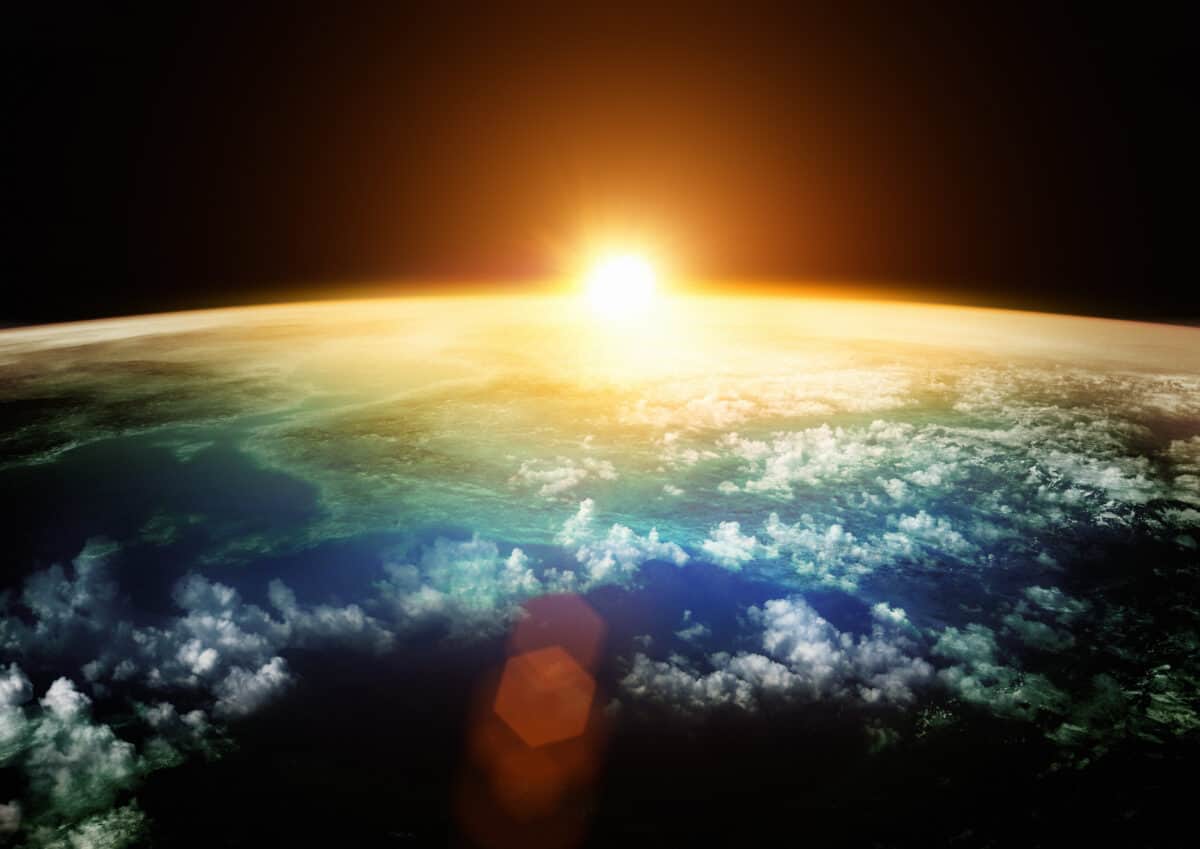
©solarseven/Shutterstock.com
A mathematician and astronomer of the Renaissance period, Copernicus proposed that the Sun was the center of the solar system — not Earth as most assumed.
89. Michael Jackson (1958 – 2009)
American singer-songwriter and iconic dancer referred to as The King of Pop. Jackson’s later years were characterized by a controversial change of appearance and sexual abuse allegations.
88. Anne Frank (1929 – 1945)
A German-born Jewish girl who kept a now-famous diary that documented life under Nazi persecution while hiding with family in an attic in Amsterdam.
87. Nostradamus (1503 – 1566)
A French astrologer, physician, and apothecary who claimed he could predict future events. The vagueness of his writing applied to numerous historical events that followed.
86. Alan Turing (1912 – 1954)
Turing was a mathematician and computer scientist at the forefront of theoretical computer science and artificial intelligence during World War II. Later prosecuted for having consensual gay relations.
85. Pope John Paul II (1920 – 2005)
Former head of the Catholic Church who made massive strides for the global religious institution throughout the second half of the 20th century.
84. Stephen Hawking (1942 – 2018)
Paralyzed British theoretical physicist and cosmologist widely considered one of the most prestigious academics of the 20th century for his works of popular science.
83. Vincent van Gogh (1853 – 1890)
Dutch Post-Impressionist painter who remains one of the most recognizable artists in the history of Western artwork.
82. Leo Tolstoy (1828 – 1910)
Russian writer whose works Anna Karenina and War & Peace rank among the most beloved novels of all time.
81. John Locke (1632 – 1704)
British philosopher and physician posthumously known as the father of modern liberalism. His “theory of mind” is a key text in the fields of personal identity and the psychology of self.
80. Nelson Mandela (1918 – 2013)
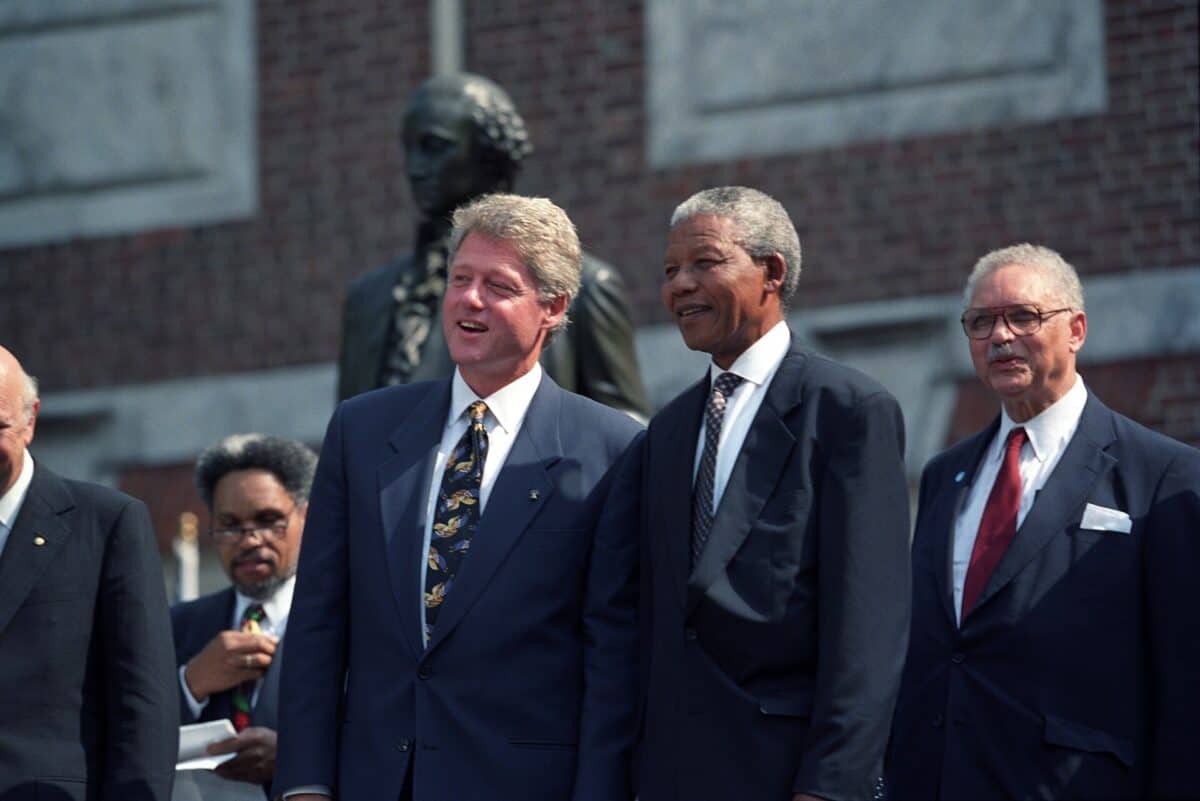
©Public Domain – License
The president of South Africa who overcame a life sentence for anti-apartheid activism to become the country’s first Black leader.
79. Franklin D. Roosevelt (1882 – 1945)
Four-term United States president who served from the Great Depression through the Second World War. His New Deal plan put the country back on track to success after a severe economic downturn.
78. George W. Bush (1946 – Present)
The 43rd President of the United States who led the country during and after the September 11th terrorist attacks, resulting in the 2003 invasion of Iraq and the start of the Global War on Terrorism.
77. King Louis XVI (1754 – 1793)
The last king of France who ruled during the outbreak of the French Revolution and the subsequent fall of the monarchy.
76. Moses (c. 1391 – 1271 BC)
A hugely significant prophet in Judaism, Christianity, Islam, and several other Abrahamic religions worldwide.
75. Mother Teresa (1910 – 1997)
A Catholic nun who achieved international acclaim for her charity work throughout her life in the 20th century.
74. Pyotr Ilyich Tchaikovsky (1840 – 1893)
Russian composer of the Romantic period who became the first from his country to make a global impression.
73. Sitting Bull (c. 1831 – 1890)
Hunkpapa Lakota was a leader who became an icon of Native American rights for leading his people through years of resistance against harmful policies of the United States government.
72. Elvis Presley (1935 – 1977)
American singer and actor who transcended his humble beginnings to become the King of Rock and Roll. Known for his provocative style and embrace of Black culture during the civil rights movement.
71. Mary Magdalene (c. 1st century)
The most-mentioned woman in the Bible. Traveled with Jesus and was named in the four canonical gospels as a witness to his crucifixion and resurrection.
70. Babe Ruth (1895 – 1948)
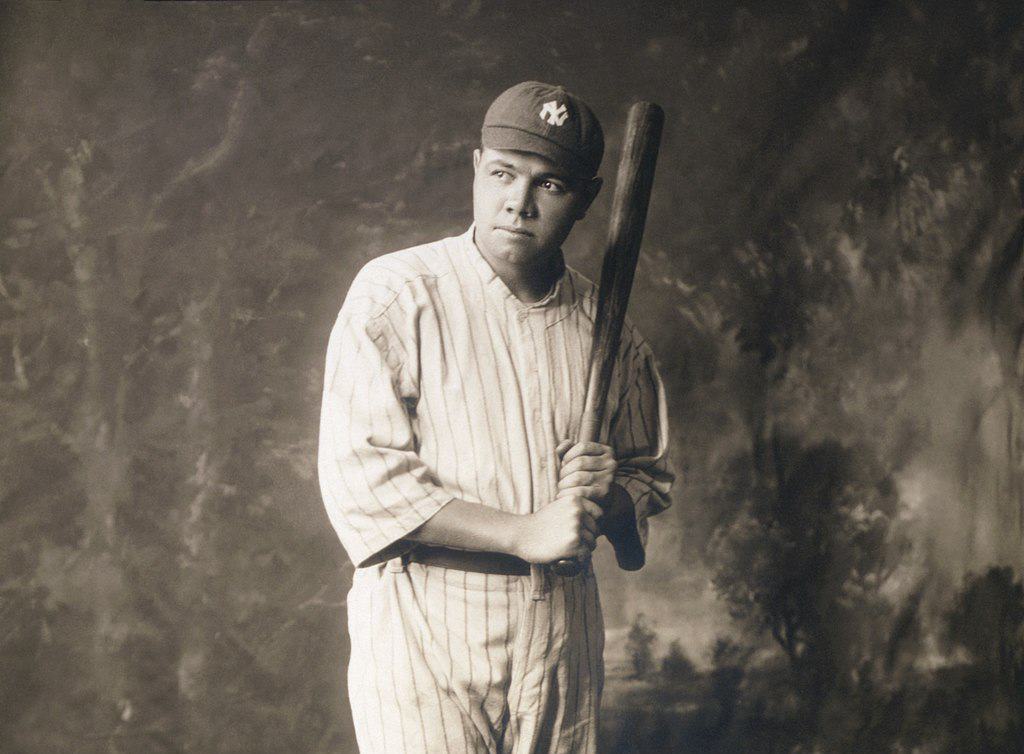
©Public Domain – License
Lefty pitcher for the Boston Red Sox and outfielder for the New York Yankees. Widely regarded as the best baseball player of all time.
69. King Tutankhamun (c. 1341 – 1323 BC)
Young pharaoh of ancient Egypt who took the throne at age nine and died at age nineteen. The last to rule in the Eighteenth Dynasty’s royal line.
68. Niccolò Machiavelli (1469 – 1527)
Called the father of modern political science and philosophy for his work as an Italian diplomat, author, and historian during the Renaissance.
67. Jean-Jacques Rousseau (1712 – 1778)
Genevan philosopher, writer, and composer who helped spur the Age of Enlightenment as well as the French Revolution. A key figure in modern political, educational, and economic theory.
66. Voltaire (1694 – 1778)
One of the most prolific writers of the Enlightenment who spanned a variety of genres and styles. A leading defender of freedom of speech and religion as well as separation of church and state.
65. Immanuel Kant (1724 – 1804)
Central thinker of the Enlightenment whose work in metaphysics, ethics, aesthetics, and epistemology made him one of the most notable people in modern philosophy.
64. Friedrich Nietzsche (1844 – 1900)
German philosopher, poet, philologist, and critic who stands as a pillar of modern philosophy for his thoughts on self-realization.
63. René Descartes (1596 – 1650)
French philosopher, scientist, and mathematician who is widely credited with helping to form the foundation of modern philosophy and science.
62. Joseph Smith (1805 – 1844)
American religious leader who founded Mormonism as well as the Latter Day Saint movement with the publication of the Book of Mormon at age twenty-four.
61. Vladimir Lenin (1870 – 1924)
Former head of Soviet Russia and, later, the Soviet Union. His revolutionary socialism helped lead Russia to become a one-party state governed by the Communist Party.
60. Nikola Tesla (1856 – 1943)
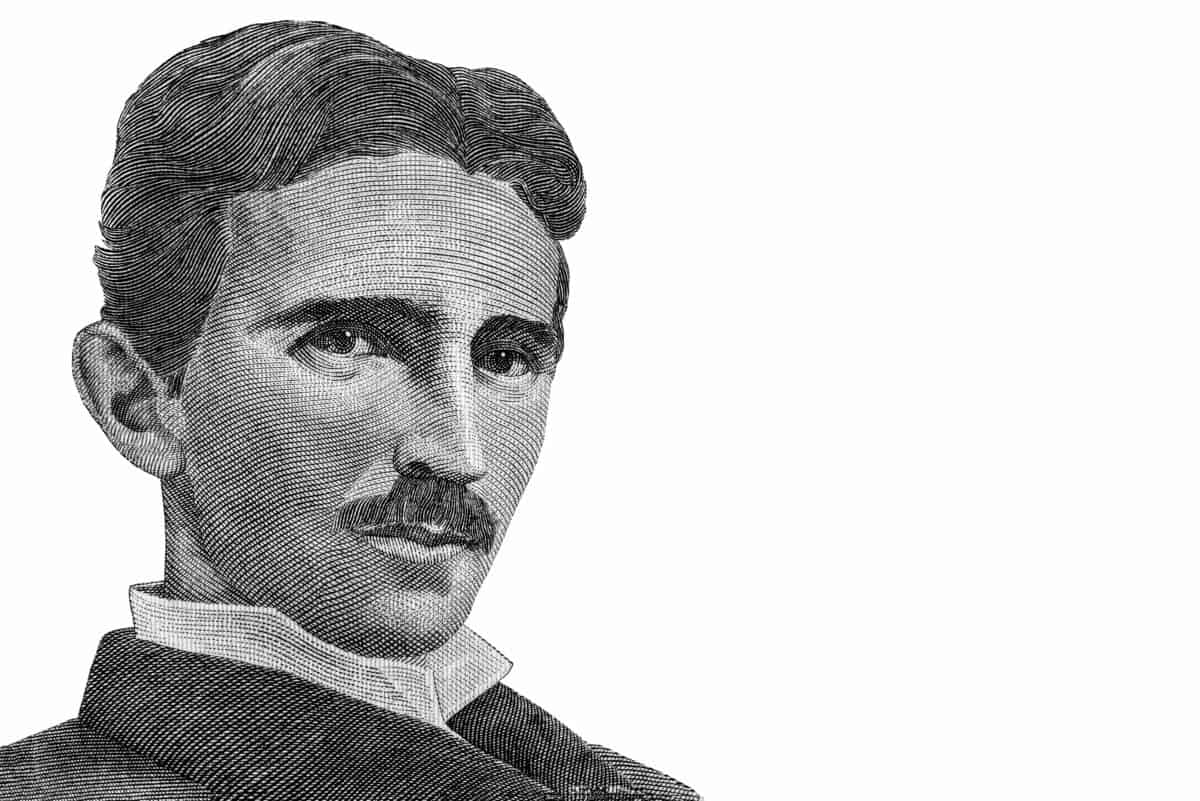
©Prachaya Roekdeethaweesab/Shutterstock.com
Nikola Tesla was a Serbian-American inventor and electrical engineer whose work contributed to the design of modern electrical systems.
59. Joseph Stalin (1878 – 1953)
A Soviet revolutionary who led the Soviet Union from 1924 until his death. Helped formalize the idea of Marxism-Leninism as well as Stalinism.
58. Martin Luther King, Jr. (1929 – 1968)
American Baptist minister, civil rights activist, and political philosopher who stands as the most prominent leader of the civil rights movement.
57. Florence Nightingale (1820 – 1910)
British social reformer who helped form the principles of modern nursing. Organized care of wounded soldiers during the Crimean War.
56. Edgar Allan Poe (1809 – 1849)
An integral figure of both Romanticism and Gothic fiction who is best known for his mysteriously macabre poetry and short stories.
55. Marie Curie (1867 – 1934)
Curie was a Polish-French physicist and chemist who pioneered research on the science of radioactivity. She was the first woman to win the Nobel Prize (and the first person to win it twice).
54. Socrates (c. 469 BC – 399 BC)
Greek philosopher whose work became the basis of Western philosophy. One of the first moral philosophers to focus on the ethical tradition of thought.
53. King James I (1566 – 1625)
Son of Mary, Queen of Scots and great-great-grandson of Henry VII, King of England and Lord of Ireland, making him a successor to all three thrones.
52. John the Baptist (c. 6 BC – c. 30 AD)
Preacher and prophet during the 1st century. Known in the Christian faith as the forerunner of Jesus Christ.
51. King David (c. 1040 BC – 970 BC)
Third King of Israel who, according to the Bible, defeated Goliath as a boy and became a favorite of King Saul, eventually assuming the throne himself.
50. Amelia Earhart (1897 – Unknown)
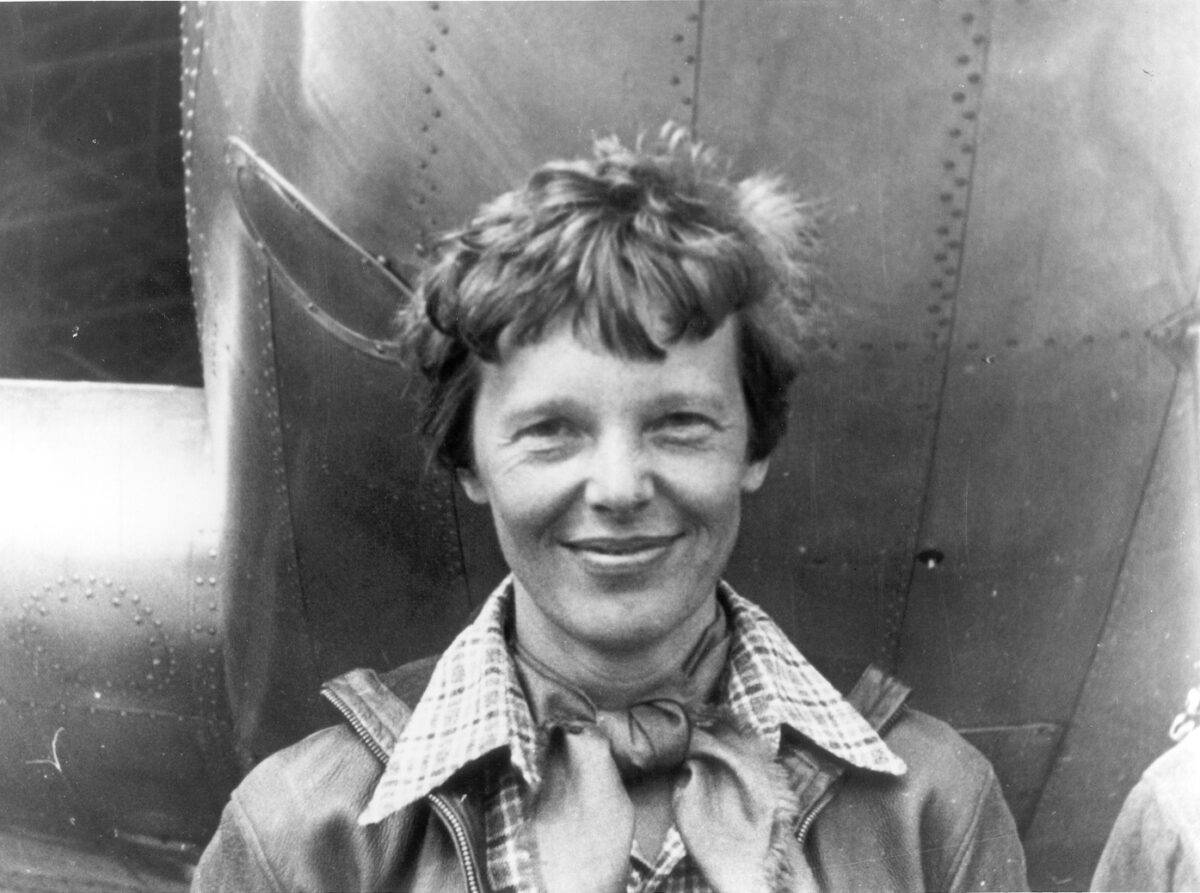
©Public Domain – License
The first female pilot to fly solo across the Atlantic Ocean, only to disappear on her way to Howland Island over the central Pacific Ocean — never to be seen again.
49. King Charles I (1600 – 1649)
King of England, Scotland, and Ireland from 1625 until his eventual death by execution. His reign was credited with spurring the English Civil War.
48. Thomas Edison (1847 – 1931)
An American inventor and businessman who revolutionized the fields of electricity, communication, sound, and film. This includes versions of the lightbulb and movie camera.
47. Queen Elizabeth I (1533 – 1603)
Former Queen of England and Ireland who served as the final ruler of the House of Tudor. Also known as the Virgin Queen.
46. Marco Polo (1254 – 1324)
Italian merchant and explorer from Venice who wrote of his travel through Asia along the Silk Road in the late 1200s.
45. Marie Antoinette (1755 – 1793)
The last queen of France prior to the French Revolution. Incredibly unpopular among the citizens of France for her luxurious lifestyle and affairs.
44. Alexander Hamilton (1755 – 1804)
One of the founding fathers of the United States who served as George Washington’s secretary of the treasury. His ideas are believed to have laid the foundation of American finance and government.
43. Catherine the Great (1729 – 1796)
The reigning empress of Russia who assumed the throne after overthrowing her husband. Her lengthy reign was inspired by the Enlightenment and proved incredibly prolific.
42. John D. Rockefeller (1839 – 1937)
An American business magnate and philanthropist who stands as the wealthiest individual in modern history thanks to his founding of the Standard Oil Company.
41. Galileo Galilei (1564 – 1642)
Italian astronomer who was hugely significant in the fields of astronomy, physics, the scientific method, and modern science at large. Remains one of the greatest astronomers ever.
40. Theodore Roosevelt (1858 – 1919)
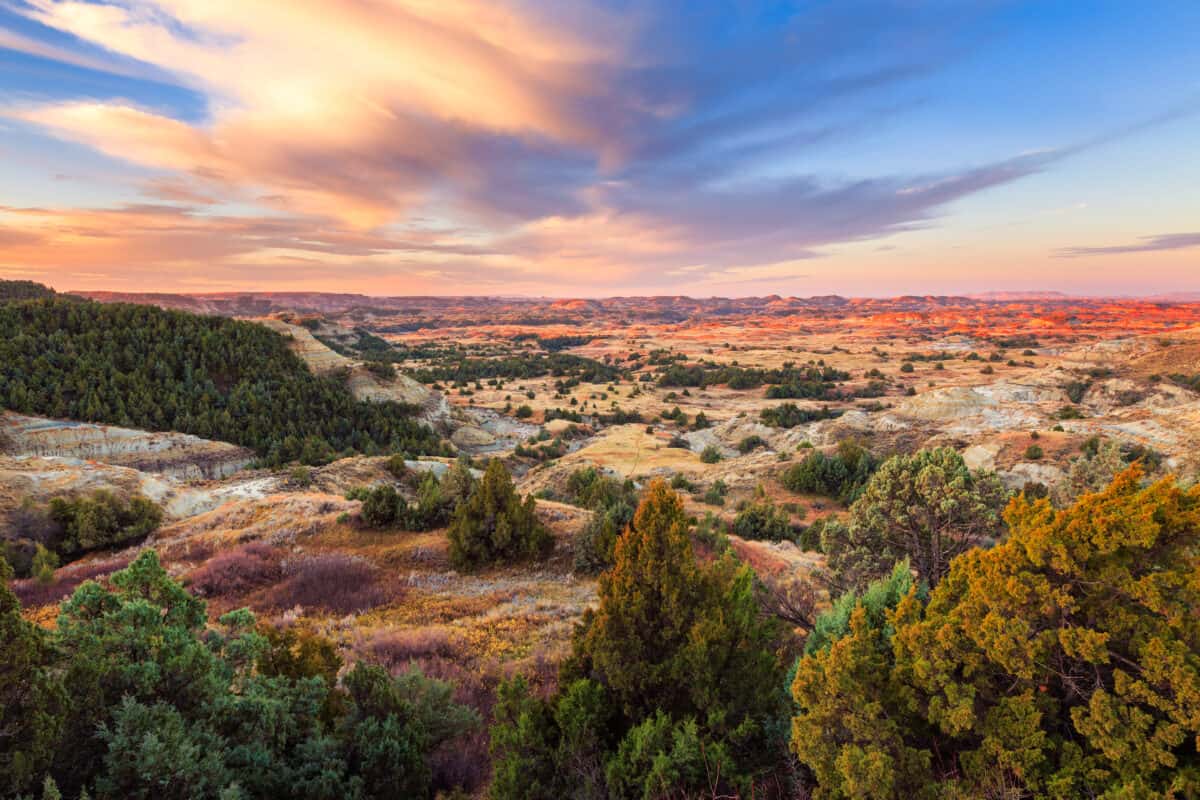
©ZakZeinert/Shutterstock.com
The 26th U.S. president as well as a soldier, historian, conservationist, and writer. He led the Republican Party as a driving force for progressive anti-trust policies.
39. Karl Marx (1818 – 1883)
Revolutionary socialist from Germany whose philosophies, political theories, and other writings became the basis of Marxism and anti-capitalism.
38. Paul McCartney (1942 – Present)
British singer-songwriter and prolific musician who served as a founding member of The Beatles. He remains one of the most successful musicians of all time.
37. Claude Monet (1840 – 1926)
An iconic French painter whose impressionist paintings functioned as a precursor to the modernist movement in the arts.
36. Johann Sebastian Bach (1685 – 1750)
A German musician and composer who embodied the late Baroque period of orchestral music. Regarded as one of the most important musicians in history.
35. Jane Austen (1775 – 1817)
British novelist who was known best for her wry comedies of manners. Her social critiques were typically fronted by strong female characters, making them a lasting part of the literary canon.
34. Mark Twain (1835 – 1910)
Humorist and writer called the father of American literature in the 19th and early 20th century. Often dubbed the greatest humorist the U.S. ever produced.
33. George Orwell (1903 – 1950)
Iconic British novelist and essayist who penned sharp social critiques through the lens of fiction. His works 1984 and Animal Farm are key texts even decades after his death.
32. Pablo Picasso (1881 – 1973)
Spanish painter who co-founded the Cubist movement — an art style characterized by avant-garde depictions of figures or objects.
31. Sigmund Freud (1856 – 1939)
Austrian neurologist known best for his work in the development of psychoanalysis. While doubt has since been cast on his treatments, his ideas about id, ego, and superego are still widely cited.
30. Charles Dickens (1812 – 1870)
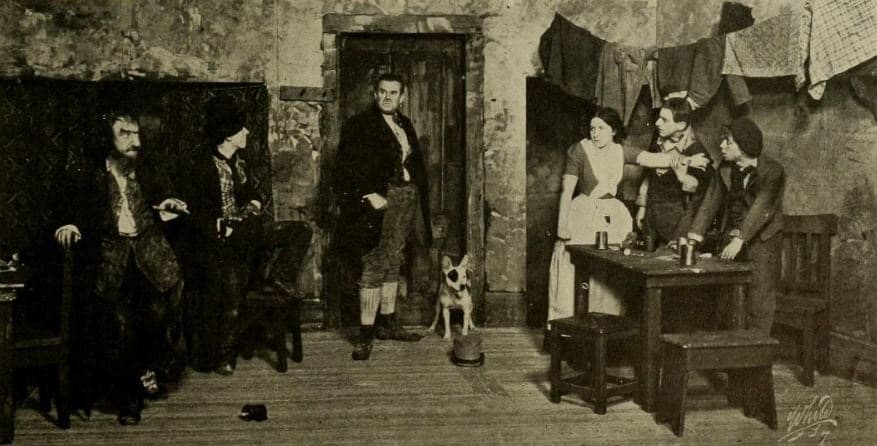
©Public Domain – License
British novelist and social critic who is responsible for drafting some of the modern world’s most iconic fictional characters. Considered the best novelist of the Victorian era.
29. Ludwig Van Beethoven (1770 – 1827)
A German composer and pianist who managed to pen some of the most notable musical compositions in history, even in spite of his lifelong struggles with deafness.
28. Wolfgang Amadeus Mozart (1756 – 1791)
A prolific composer who wrote more than 800 works in just 35 years of life. His name is synonymous with the Classical period.
27. Michelangelo (1475 – 1564)
An Italian painter and sculptor who left a lasting impact on the future of Western artwork and architecture. His works include David, the Sistine Chapel ceiling, and the Creation of Adam.
26. Plato (c. 429 BC – c. 347 BC)
A profoundly influential figure who laid the groundwork for the entire study of theoretical and practical philosophy as we know it.
25. King Arthur (Unknown)
While no one knows for certain whether King Arthur actually existed, his status as a figure of medieval literature makes him one of the most famous people in history.
24. Christopher Columbus (1451 – 1506)
Italian navigator and explorer who accomplished multiple voyages across the Atlantic and paved the way for the eventual colonization of the Americas.
23. Mahatma Gandhi (1869 – 1948)
Typically referred to only as Gandhi, the man was a political ethicist and anti-colonial nationalist who used nonviolence to lead a campaign for Indian independence from Britain’s rule.
22. Adolf Hitler (1889 – 1945)
Leader of the Nazi Party and perpetuator of the Holocaust who assumed dictatorship of Germany in 1933. He kicked off World War II by invading Poland in 1939.
21. John Lennon (1940 – 1980)
Like Paul McCartney, another Beatles member on this ranking of the most famous people in history, John Lennon was a singer-songwriter and musician who was the group’s first unspoken leader.
20. Henry VIII (1491 – 1547)
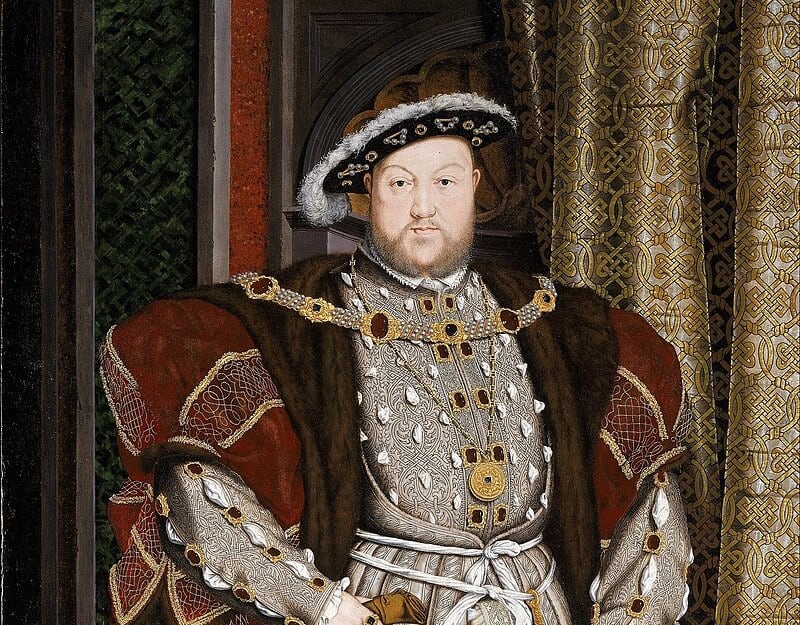
©Public Domain – License
Longtime King of England infamous for being married six different times. Also initiated the English Reformation in an attempt to divorce.
19. Winston Churchill (1874 – 1965)
Prime Minister of the United Kingdom during World War II and again in the early 1950s. He often ranks among the greatest PMs in the nation’s history.
18. Albert Einstein (1879 – 1955)
Called the most influential scientific mind of all time, Albert Einstein and his work in theoretical physics made great strides in quantum mechanics and the science of radiation.
17. Isaac Newton (1643 – 1727)
Described at the time as a natural philosopher, Isaac Newton was a mathematician, astronomer, and physicist (among other disciplines) who helped trigger the Scientific Revolution and Enlightenment.
16. Genghis Khan (c. 1162 – 1227)
Founder and first Khagan of the largest land empire in the history of the world, the Mongol Empire. Perhaps known best for his vicious military campaigns that killed millions.
15. John F. Kennedy (1917 – 1963)
Once the youngest man to be elected president in the United States, John F. Kennedy was tragically assassinated before completing his first term in 1963.
14. Joan of Arc (c. 1412 – 1431)
Now a patron saint of France, Joan of Arc helped defend the French nation during the Hundred Years’ War and claimed to receive her commands straight from God.
13. Charles Darwin (1809 – 1882)
A British geologist and biologist, Charles Darwin is one of the most famous people in history for his contributions to the idea of evolutionary biology.
12. Thomas Jefferson (1743 – 1826)
One of the founding fathers of America, Thomas Jefferson served as the third President of the United States. He is the primary author of the Declaration of Independence.
11. Martin Luther (1483 – 1546)
A key name in the founding of Protestantism, Martin Luther rejected the Catholic Church and kicked off the Protestant Reformation with his publication of the Ninety-Five Theses.
10. Leonardo da Vinci (1452 – 1519)

©Attributed to Francesco Melzi, Public domain, via Wikimedia Commons – License
From his many inventions to his countless illustrations, Leonardo da Vinci was a painter, illustrator, scientific theorist, and designer whose ideas were decades ahead of his contemporaries.
9. Alexander the Great (356 BC – 323 BC)
King of the ancient Greek kingdom of Macedon, Alexander the Great — also known as Alexander III — created one of the most vast empires in human history through a series of strategic military moves.
8. Aristotle (384 BC – 322 BC)
Still one of the most famous people in history, Aristotle’s writings on science, language, politics, philosophy, economics, and art are still referenced in the 21st century.
7. Napoléon Bonaparte (1769 – 1821)
Napoléon I was a French politician who is known best for being one of the greatest military commanders in history. In fact, his strategies are still studied by global militaries.
6. Julius Caesar (100 BC – 44 BC)
A Roman general and statesman, Julius Caesar helped lead the Roman army to victory in civil war. This helped him become the dictator we know him as today.
5. Abraham Lincoln (1809 – 1865)
The 16th U.S. president, Abraham Lincoln, issued the Emancipation Proclamation to free the slaves nationwide amidst the American Civil War. He was later assassinated for his actions.
4. Cleopatra (69 BC – 30 BC)
The last active leader of the Ptolemaic Kingdom of Egypt, Cleopatra VII has been a pop culture staple synonymous with Egyptian civilization since at least the Victorian era.
3. George Washington (1732 – 1799)
This founding father of the United States served as the country’s very first president from 1789 to 1797. He also helped bring the country to victory in the American Revolutionary War.
2. William Shakespeare (1564 – 1616)
Easily the most notable playwright of all time, William Shakespeare is perhaps the greatest person ever to wield the pen in the history of the English language.
1. Jesus Christ (c. 4 BC – c. 30 AD)
Topping the list of the most famous people in history is Jesus Christ himself: a 1st-century preacher and Jewish leader crucified for his teachings. He is the foundation of Christianity.
The image featured at the top of this post is ©Negro Elkha/Shutterstock.com.
